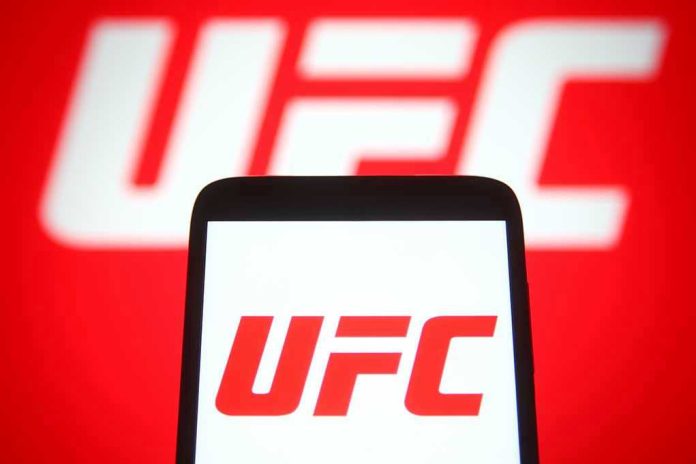
UFC flyweight Brandon Royval delivered an explosive rejection of Dana White’s proposed White House fight card, calling it “Hunger Games” entertainment for billionaires and politicians who don’t care about working-class fighters.
Story Highlights
- Brandon Royval publicly refused to participate in UFC’s planned White House event, scheduled for America’s 250th anniversary
- Fighter compared the proposed spectacle to “Hunger Games,” criticizing performances for political elites
- Sean Strickland and other UFC athletes have rallied behind Royval’s anti-establishment stance
- Dana White confirms event remains in early planning stages with no confirmed fighters yet
Fighter Rebellion Against Political Theater
Brandon Royval’s explosive podcast rant exposed growing frustration among UFC fighters with the sport’s increasing politicization. Speaking on the “In the Arena” podcast, Royval declared he refuses to fight for politicians and wealthy elites, stating he doesn’t care about impressing political figures. His candid rejection of performing like a gladiator for the establishment resonates with Americans tired of being treated as entertainment for the political class.
White House Event Faces Growing Opposition
Dana White’s ambitious plan to stage a UFC event at the White House for America’s 250th anniversary in June 2026 encounters unexpected resistance from athletes. Sean Strickland publicly endorsed Royval’s position, amplifying dissent within the UFC community. This fighter backlash threatens the event’s credibility and highlights the risk of alienating athletes when sports become tools for political spectacle rather than genuine competition.
Trump-UFC Alliance Under Scrutiny
The proposed White House fight card represents the latest chapter in Donald Trump’s longstanding relationship with the UFC and Dana White. While Trump’s support has elevated the organization’s profile, Royval’s criticism reveals potential consequences of mixing sports with political grandstanding. The fighter’s “Hunger Games” comparison strikes at concerns about using athletes as props for elite entertainment, undermining the authentic spirit of competition that made America’s fighting traditions great.
Athlete Autonomy Versus Corporate Control
Royval’s defiant stance represents broader tensions between fighter independence and organizational pressure to participate in politically charged events. His refusal to perform for “billionaires and rich people that could give a s— less about me” echoes working-class frustrations with elitist spectacles. This rebellion demonstrates that even in tightly controlled sports organizations, individual athletes can still reject attempts to exploit their talents for political theater, preserving the integrity of genuine athletic competition.
The controversy surrounding the White House fight card reveals deeper questions about the proper relationship between sports, politics, and American values. Royval’s principled stand may inspire other athletes to prioritize authentic competition over performing for political elites who view them as mere entertainment.
Sources:
UFC fighter rips idea of fighting at White House in explicit rant: ‘F— all politicians’
Sean Strickland backs UFC star who refuses to fight for ‘a bunch of billionaires’ at the White House











